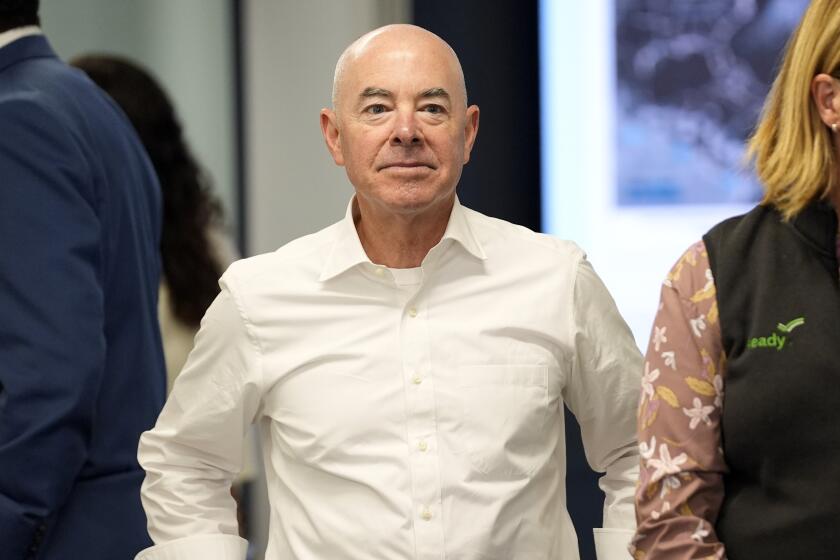Pakistan releases man arrested in connection with Times Square bomb plot
Pakistani authorities have released a former Pakistani army major arrested in connection with the failed Times Square bombing in New York, saying they had determined he had no links to prime bombing suspect Faisal Shahzad.
Adnan Ahmad was detained in mid-May on suspicion of having links with Shahzad, the Pakistani American accused of rigging a Nissan Pathfinder with explosives that he tried to detonate May 1 in midtown Manhattan. Pakistani law enforcement sources said investigators suspected Ahmad because they believed he and Shahzad had exchanged cellphone calls and had met once in Islamabad.
However, those law enforcement sources said that after further investigation, Ahmad was cleared of all allegations and any links with Shahzad. He was released Thursday. His brother, Qamar Ahmad, a computer engineer, was also detained, but the sources said he was expected to be released soon.
The law enforcement sources said their suspicions about Adnan Ahmad were misplaced, but they were unable to explain why they initially believed he had called Shahzad. Such cellphone calls would have been logged and easy for investigators to track. Both U.S. and Pakistani sources familiar with the investigation had said that calls linked Shahzad and Ahmad.
Ahmad’s release suggests a lack of communication between Pakistani and U.S. investigators that may be impeding progress in the case.
U.S. investigators were not given access to Ahmad, Pakistani law enforcement sources said. However, they said that information gleaned from interrogations of Ahmad was relayed to U.S. investigators working on the Shahzad case.
It remained unclear when Ahmad had left the army, but the chief army spokesman told the Associated Press that Ahmad was forced to retire because he had ties to banned extremist groups.
Of the 13 people arrested in Pakistan in connection with the Times Square bombing attempt, seven have been released, the sources said.
One of the people who remains in custody is Shoaib Mughal, a Pakistani computer sales business owner from Islamabad who investigators believe acted as a go-between for the Taliban and Shahzad. Mughal is suspected of financing Shahzad’s activities with $11,000 to $15,000, the sources said. The money was transferred to Shahzad with the help of Shahid Hussain, a close friend of Shahzad who has lived both in Pakistan and the U.S. and is in custody in Pakistan.
Another man who remains in custody is Mohammed Rehan, a Pakistani from Karachi and an alleged member of the militant organization Jaish-e-Mohammed. Investigators have said Rehan drove Shahzad from Karachi to Peshawar last summer, though they have not elaborated on alleged links between the two men.
Before Ahmad’s release, U.S. officials said they could not link him to the Times Square plot. The information they had received from Pakistani officials after the interrogation of another suspect in the case suggested Ahmad was “disaffected” and had ties to Tehrik-e-Taliban Pakistan, a militant group that allegedly assisted Shahzad, a senior official said. But the U.S. had not been able to independently verify those allegations.
In the wake of the May 1 Times Square incident, however, even fragmentary leads about possible threats from Pakistan are receiving intense attention, which explained the continuing U.S. efforts to learn more about Ahmad, several officials said. A U.S. official declined to comment Sunday on his release.
In general, U.S. officials say they have been pleased with Pakistani cooperation in the case, especially since the visit to Islamabad two week ago by retired Marine Gen. James Jones, the U.S. national security advisor, and CIA Director Leon E. Panetta. The two officials laid out evidence of links between Shahzad and the Pakistani Taliban, and demanded greater effort by Pakistan to crack down on the group and its affiliates.
But ties between militant groups and members of the Pakistani military and security services remain a concern to officials in Washington.
More to Read
Sign up for Essential California
The most important California stories and recommendations in your inbox every morning.
You may occasionally receive promotional content from the Los Angeles Times.











